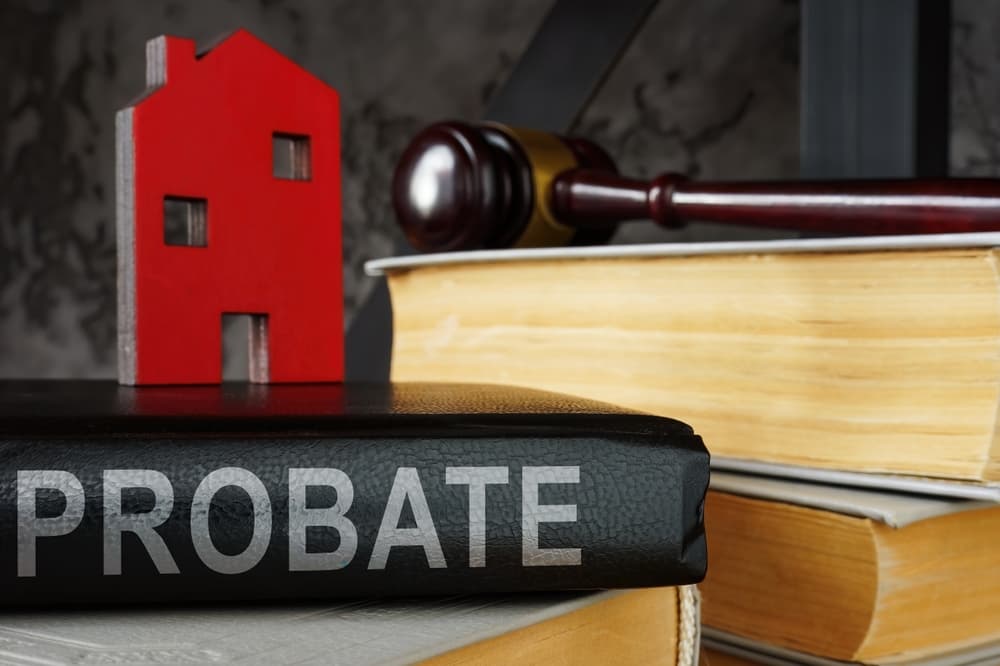How Long Do You Have to File Probate after Death?

Losing a loved one is an incredibly difficult and emotional experience, and the last thing you may want to think about at such a time is dealing with legal matters. However, it is crucial to understand the steps that must happen in the wake of a death, particularly when it comes to probate filing. Probate is the legal process of administering a deceased person’s estate, ensuring that the estate pays off debts and distributes assets to the rightful beneficiaries.
While the specific time frame to file probate after death can vary depending on the jurisdiction, it is crucial to act promptly. To navigate this process and fulfill your loved one’s wishes, seek guidance from a qualified probate law attorney. Contact an attorney for assistance and support during this challenging time.
Probate can be a lengthy and complex process, involving court proceedings, documentation, and the distribution of assets. Without the guidance and experience of a probate attorney, you risk making costly mistakes, facing delays, and even compromising the integrity of the estate. By hiring a skilled and knowledgeable attorney, you gain a valuable ally who will guide you through the entire probate process, ensuring you complete everything efficiently and according to the law.
What Is Probate and Why Is It Necessary?

Before discussing the time limits for filing probate, it is essential to understand what probate is and why it is necessary. Probate involves proving the validity of the deceased person’s will, identifying and inventorying their property, paying off any outstanding debts, and distributing the remaining assets to the beneficiaries as outlined in the will.
Probate is necessary to carry out the deceased person’s wishes and transfer their assets to the rightful beneficiaries. It also provides a legal framework for resolving any disputes that may arise during estate distribution. Without probate, there is no formal mechanism to oversee the distribution of assets and settle any claims or disagreements.
At the same time, probate is also a creditor’s last chance to collect money the deceased person owes. Once probate closes and the estate settles, creditors can no longer receive payment of their debts.
Why Does Timing Matter in Probate?

Timing plays a crucial role in the probate process. Filing probate promptly after a loved one’s death is essential for several reasons:
Ensuring Proper Administration of the Estate
Filing probate promptly ensures that the executor correctly administers and distributes the deceased person’s assets according to their wishes. It allows the court to oversee the process and ensure that the executor takes all necessary steps to settle the estate.
Fulfilling Legal Obligations
Probate is not just about distributing assets but also settling the deceased person’s debts. By filing probate promptly, the executor can fulfill their legal obligations to pay off any outstanding debts, such as final taxes, mortgage payments, or credit card bills. Creditors will have the right to receive payment for their claims.
Avoiding Delays and Disputes
Waiting too long to file for probate can increase the chances of delays and disputes. As time passes, beneficiaries may become impatient or disagree on how they should distribute the assets. Filing probate promptly helps minimize the risk of conflicts and ensures a smooth probate process. Will contests and disputes with the executor have the potential to add significant costs and delays to the process.
Remember that the probate process will take a set amount of time, regardless of when you open it by filing with the court. You can expect that probate will take at least six months, and the timeframe may lengthen if there are any complicating factors. The court will not truncate deadlines or rush your paperwork to quicken the process.
You may have no control over some factors, such as how busy the probate court is. However, you can control when you file the paperwork and whether it is correct. While you generally want to finish probate as quickly as possible to bring the matter to a close, you also should not rush things to the point where you make a mistake. Hiring an experienced probate lawyer can ensure you begin the process quickly and eliminate the possibility of an error, which may delay the proceedings.
General Time Limits for Filing Probate
The specific time limit for filing probate after a death varies depending on the jurisdiction. Each state or country has laws and regulations governing probate. You should consult with a probate attorney in your jurisdiction to understand the suggested time limits that apply to your situation. These time limits are not strict deadlines but recommendations to ensure a smooth probate process. You can still file probate if you miss the recommended time frame, but there may be additional complications and delays.
In most states, there are no deadlines for when you must begin the probate process. Beginning probate starts the clock ticking, and then there are deadlines that you must meet. A probate attorney can track those deadlines so you do not complicate your case by missing any of them.
What Happens if You Wait Too Long to Begin Probate?
You may encounter several challenges and complications if you wait too long to begin probate. Here are some potential consequences of delaying probate:
Increased Risk of Asset Disputes
As time passes, beneficiaries may become impatient or disagree on distributing the assets. They may put more pressure on the executor and lead to family members questioning how they perform their role, leading to disputes and even legal battles. You never quite know what can happen when individual family members have financial interests and potentially fraught relationships within the family. Filing probate promptly helps minimize the risk of conflicts and ensures a smooth distribution of assets.
Potential Loss of Assets
By delaying probate, the deceased person’s assets may be at risk. Without proper administration, assets are likely to get lost, damaged, or misappropriated. The executor is responsible for administering the estate in accordance with their fiduciary obligations. Still, more time means they may have far more work to do to manage the assets. Filing probate promptly protects the assets and distributes them according to the deceased person’s wishes without imposing too much burden on the executor.
Incurring Additional Costs
Delaying probate can also result in additional costs. For example, if someone does not properly maintain or insure the deceased person’s property, it may deteriorate or become damaged, leading to additional expenses. Even additional legal matters can raise your costs to complete the probate process. Filing probate promptly helps avoid these unnecessary costs.
Missing Deadlines for Tax Payments
Probate also involves settling any outstanding tax obligations of the deceased person. By waiting too long to file probate, you may miss important deadlines for tax payments, leading to penalties and interest charges.
What May Delay the Probate Process

While it is important to file probate promptly, several factors may delay the probate process. Here are some common reasons for delays:
Lack of a Valid Will
The probate process can become more complicated if the deceased person does not leave a valid will. Without a will, the court must rely on intestate laws to distribute the estate, which can be a lengthy and complicated process.
Disputes Among Beneficiaries
If the beneficiaries disagree about the distribution of assets, it can significantly delay the probate process. Resolving these disputes may require additional court proceedings and negotiations.
Complex Estate Planning
When the deceased person has a complex estate plan with multiple properties, business interests, or offshore assets, the probate process can be more time-consuming and require additional legal help.
Outstanding Debts and Creditors
Settling these obligations can delay the probate process if the deceased person has significant debts or creditors. The executor or personal representative must identify and notify all creditors and negotiate the payment of outstanding debts.
Real Estate Issues
If the deceased person owned real estate in multiple jurisdictions, it can complicate the probate process. Each jurisdiction may have different laws and procedures for transferring property ownership, leading to additional complexities and delays.
Why You Need a Probate Lawyer for Your Case

Navigating the probate process can be complex and overwhelming, especially during a time of grief. Seeking guidance from a qualified probate lawyer can provide significant benefits. Here’s why you need a probate lawyer for your case:
Knowledge of Probate Law
Probate lawyers have knowledge and experience in probate law. They are well-versed in the laws and regulations surrounding estates and probate procedures, and can guide you through each step of the process. This knowledge ensures that you are fully aware of your rights and obligations and helps avoid any potential missteps that can lead to costly delays or disputes.
Efficient Administration of the Estate
A probate lawyer can help streamline the administration of the estate. They can assist with gathering and organizing the necessary documentation, preparing the required court forms, and communicating with the court and other involved parties.
Resolution of Disputes
If disputes arise among the beneficiaries or creditors, a probate lawyer can help mediate and resolve these conflicts. They can provide objective advice and negotiate on your behalf to reach a fair resolution.
Protection of Your Rights and Interests
A probate lawyer acts as your advocate, protecting your rights and interests throughout the probate process. They can represent your concerns and wishes to the court, ensuring you can voice your opinion. Whether addressing disputes among family members or negotiating with creditors, having a probate lawyer by your side can significantly increase the chances of achieving a favorable outcome.
Peace of Mind
By hiring a probate lawyer, you can have peace of mind knowing that a professional is handling your case. They will deal with the challenges of probate law on your behalf, allowing you to focus on grieving and healing.
You are already dealing with enough when you have lost a loved one. Your family is facing many challenges, and you do not want probate to be one of them. If the deceased person does not have trusts established that allow you to avoid probate entirely, you must go through the process before retitling the assets. The less you have to do during this time, the better.
If you are an executor, you have a particular element of personal risk because you may be liable to the beneficiaries if you violate your fiduciary duties. It never hurts to get extra help from an experienced probate lawyer at the outset of the process. You should not wait until you have potential legal issues to act because dealing with family tensions and delays can cause complications.
Hire a Probate Attorney As Soon as Possible
You should hire a probate attorney as soon as possible after the death of your loved one. Understandably, you may not yet be in the position where you are ready to deal with probate, but you should at least get legal help to prepare you for the point when you are ready to begin the process. You may learn that there are issues that you must handle as the executor, even before you file the initial paperwork.
Hiring a probate attorney early on can help you expedite the probate process. Time is of the essence, especially when managing financial matters and ensuring the timely distribution of assets. An experienced attorney will leverage their experience and knowledge of probate laws to streamline the process, minimize delays, and expedite the distribution of assets to the rightful beneficiaries. By promptly initiating the probate process with the assistance of a skilled attorney, you can settle the estate efficiently, allowing you and your family to move forward.
In conclusion, acting quickly is wise when it comes to probate. Hiring a probate attorney as soon as possible will provide you with the necessary knowledge, guidance, and reassurance, help you through the legal process efficiently and expedite the distribution of assets. Do not hesitate to contact a reputable Settle estate planning lawyer for the assistance and support you need. Taking the right steps now can help ensure a smooth probate process and protect your rights and interests.



